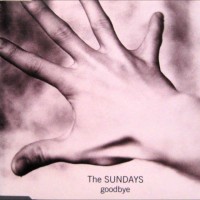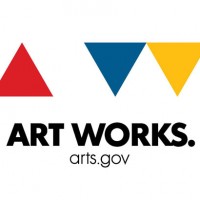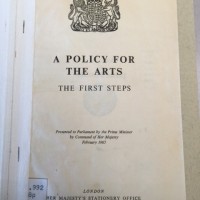At the University of Kentucky a 1930's WPA-funded mural by Ann Rice O'Hanlon has been temporarily covered while the university administration, faculty and students deliberate on the presentation of the work and its depiction of African-Americans. The story has prompted a response from author Wendell Berry, in an opinion piece in the Lexington Herald-Leader, where he writes: Though I willingly would do so if it were possible, I cannot understand the University of Kentucky’s decision to hide Ann Rice O’Hanlon’s fresco in Memorial Hall. The … [Read more...]
Does the creative class matter for regional growth?
In a recent post, Richard Florida looks at the growth in the 'creative class' in US metro areas since the year 2000. The biggest increase is in what was, in 2000, a city not known for creative class workers, Las Vegas. Indianapolis, Portland, Salt Lake City, and Cincinnati also post large (above 20%) gains in number of creative class workers. Does it matter? Here are a few questions that come to mind. First, I think a reasonable goal for cities is to attain broadly distributed gains across its population in standard of living and quality … [Read more...]
Blog sabbatical
Every once and a while I need to take a break from blogging, and as our semester comes to a close I know this is one of those times, to attend to other duties, to read the long list of books in my queue, and to stand back to try for something of a wider view of where arts management and policy are headed. I can sense when I am starting to repeat myself, at which point it is time to hit the refresh button. Thanks to all readers, and to Artsjournal for being such an invaluable site for news and opinion. À la prochaine ... … [Read more...]
Big data and price discrimination: chill
A search on our blog host artsjournal.com re 'big data' yields a lot of hits, suggesting it is obviously something about which arts managers need to be aware of, and which citizens might have cause to fear as corporations and governments use data in hidden but nefarious ways. But is it really all that? A recent post from the Brookings Institution on big data and price discrimination highlights for me some of the unwarranted fears and speculations. The post gives three examples of potential problems. First: Companies could use Big Data to … [Read more...]
Are nonprofit arts organizations special?
April 16, 2015 marked the opening session of a conference held at the School of Public and Environmental Affairs at Indiana University Bloomington, on Advancing the Field(s) of Nonprofit Management: New Structures, New Solutions. I was asked to speak about the arts, specifically about relationships between nonprofit arts organizations and the commercial and public sectors. Our session chair, my SPEA colleague Beth Gazley, asked us to say something ‘provocative’ in our allotted few minutes. So, for what it’s worth… Artists, and nonprofit arts … [Read more...]
A note on key performance indicators
My son goes to a wonderful elementary school - all his teachers have been terrific. His county school board produces the worst report cards ever (so far). The report cards are 'growth-based', meant to measure progress from competency levels exhibited at the beginning of the school year. Fair enough. But there are 40 'essential learnings' in language, and 26 in math. And the parent has no guide as to which of these 'essential learnings' have been emphasized in class, or as to which are most important for general progress. My older children … [Read more...]
Does culture’s share of GDP matter?
I don't see how it does. Americans for the Arts sees it differently - writing about the recent Bureau of Economic Analysis accounts, they write: Much has been written about the truly mind-bending sum of $698.7 billion in industry expenditures—a substantial contributor to the economy that supported 4.7 million jobs in 2012 and represented 4.32 percent of GDP. How big is $698.7 billion and 4.3 percent of GDP? If the arts and culture in the U.S. was a state, its $698.7 billion would be larger than the Gross State Product for 45 out of 50 … [Read more...]
Arts organizations and the quest for data
There is an interesting interview from TRG Arts regarding the benefits to arts organizations from hiring someone to manage data. Heather Kitchen, Managing Director of Dallas Theater Center* says: When I began as the chief administrative person at a theater 25 year ago, even a large regional theater did not have a computer driven ticketing package. As time evolved, and we moved past Lotus 123 spreadsheets for tracking ticket sales, I observed and appreciated the power of accurate data and how it could be a powerful tool - not a decision maker, … [Read more...]
A Policy for the Arts: The White Paper of 1965 (updated with a link)
During the past few weeks the British art world has been marking the 50th anniversary of the publication of A Policy for the Arts: The First Steps, a White Paper authored by Member of Parliament Jennie Lee, presented to Parliament on behalf of the Labour government of the time (on twitter, check #ArtsPolicy50 for a number of links to various commentaries). Unfortunately I know of no version of the paper online, which is a shame (readers - please share a link if you have one?). The paper is concise: 16 pages of text, no glossy pictures of … [Read more...]
On the return to public investments in museums
Arts Council England has released a new report that seeks to quantify the 'economic impact' of museums. It estimates that to be £1.45 billion. That doesn't matter much - there are no insights to be gained, no policy implications, from the estimate's being £1.45 billion or £2.07 billion or £1.03 billion. Still, ACE thought that funds spent on producing this report were useful for something, useful enough to justify the opportunity costs in reduced funding for artists and arts organizations - maybe there will be a follow-up study that explains … [Read more...]










